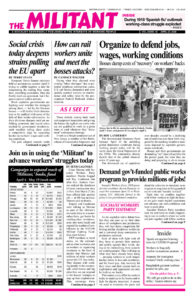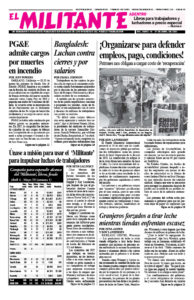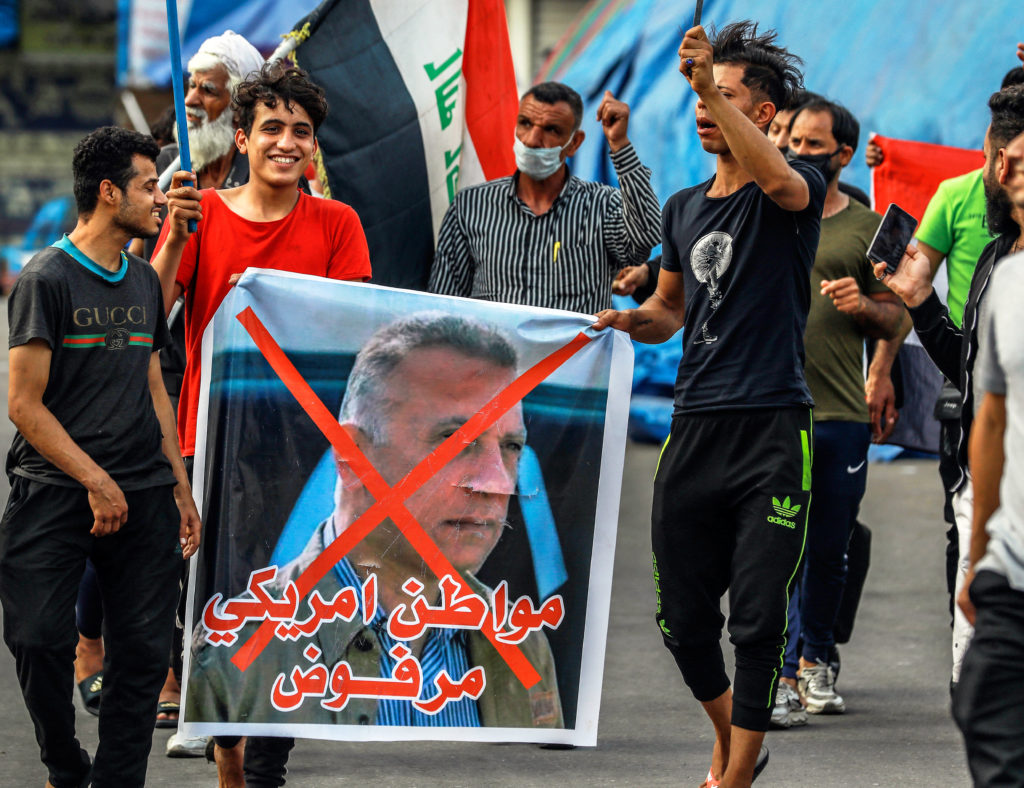Hundreds of Iraqi protesters defied a government-imposed curfew in the southern city of Nasiriyah and took to the streets in recent weeks to demand a halt to restrictions on their gatherings. They also condemned the April 5 assassination of Anwar Jassem Mhawwas, a leader of anti-government demonstrations there.
Large numbers of workers and youth have joined protests in Baghdad, the capital, and several other cities since last October, but many suspended their actions at the end of March after the government clamped down on any gatherings, using the spread of coronavirus as a pretext. The protesters have been fighting for political rights, the fall of the government, jobs, water and electricity, and a halt to Tehran’s and Washington’s interference in the country.
A cadre of protesters have maintained encampments in Tahrir Square in Baghdad, in Diwaniyah, Basra and Nasiriyah. They are determined to be well placed to restart their hard-fought struggle, which attracted tens of thousands of working people.
“I will not abandon my dream of a nation that suits us and provides us with a dignified life,” student Hassan Abdulkarim told Asharq Al-Awsat in Tahrir Square.
Mhawwas regularly led demonstrations in Nasiriyah’s Al-Haboubi Square, organizing singing and baking bread for participants. She had issued a call for the resumption of anti-government protests just days before masked gunmen killed her and seriously wounded two of her sons at their home. Relatives told Middle East Eye that further demonstrations were needed now to press the government to provide basic necessities for day laborers and others who have lost their jobs in recent weeks.
The deepening social crisis in the country is falling hardest on working people. The Iraqi government faces a collapse of its revenues, following the worldwide plunge in oil prices. Tens of thousands of public sector workers have already gone months without pay. Many now face layoffs.
The government named former spy chief Mustafa al-Kadhemi as prime minister-designate April 9, the third person appointed to the position in the last 10 weeks. The previous designate, Adnan al-Zurfi, quit after failing to get backing from parties allied with Tehran.
The Iranian rulers have extended their political and military clout in Iraq and elsewhere in the Middle East in relentless wars that have wracked the region in recent years. Militias they back have led violent assaults on anti-government protests in Iraq and Lebanon, as well as fought to stave off challenges to the Bashar al-Assad dictatorship in Syria.


